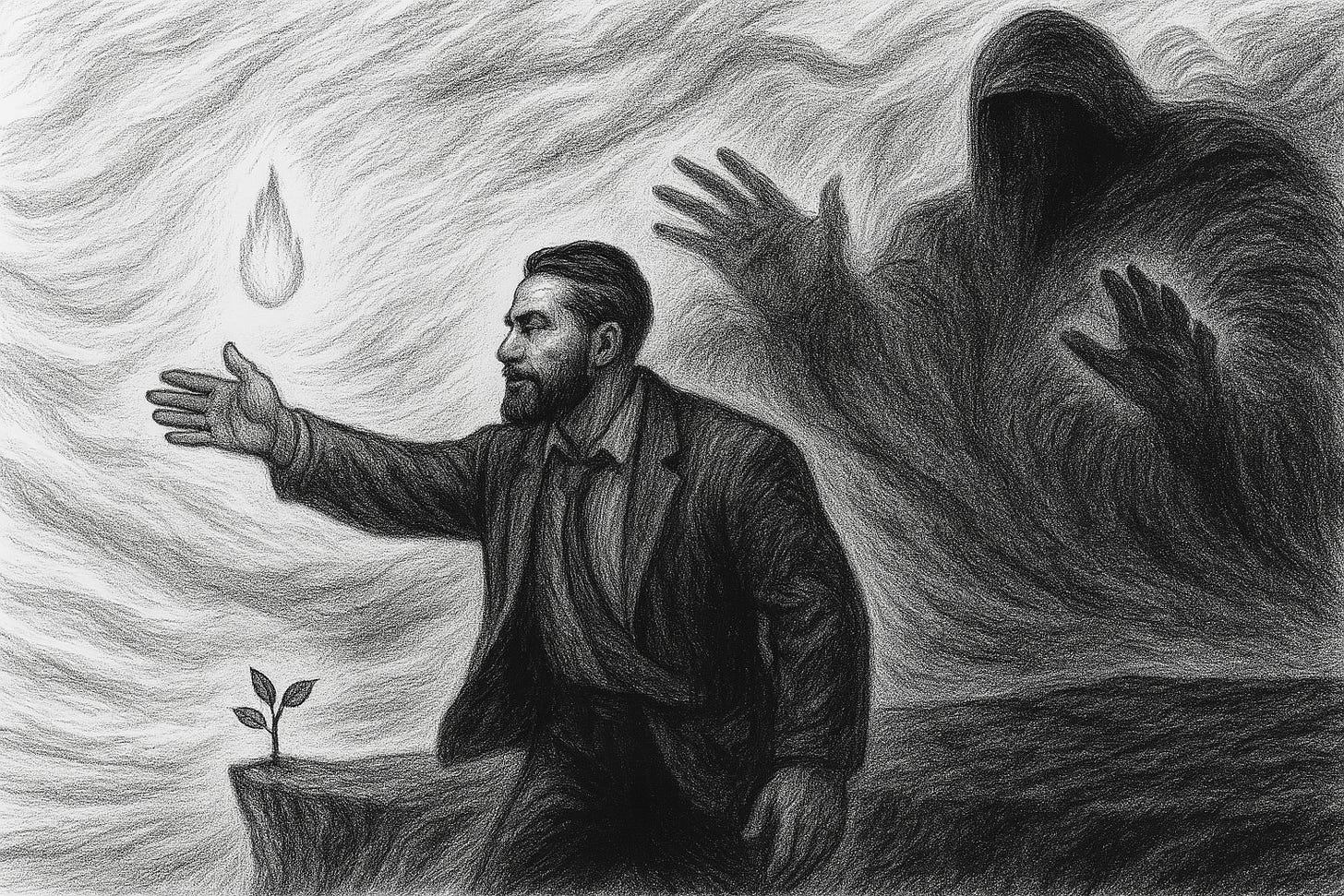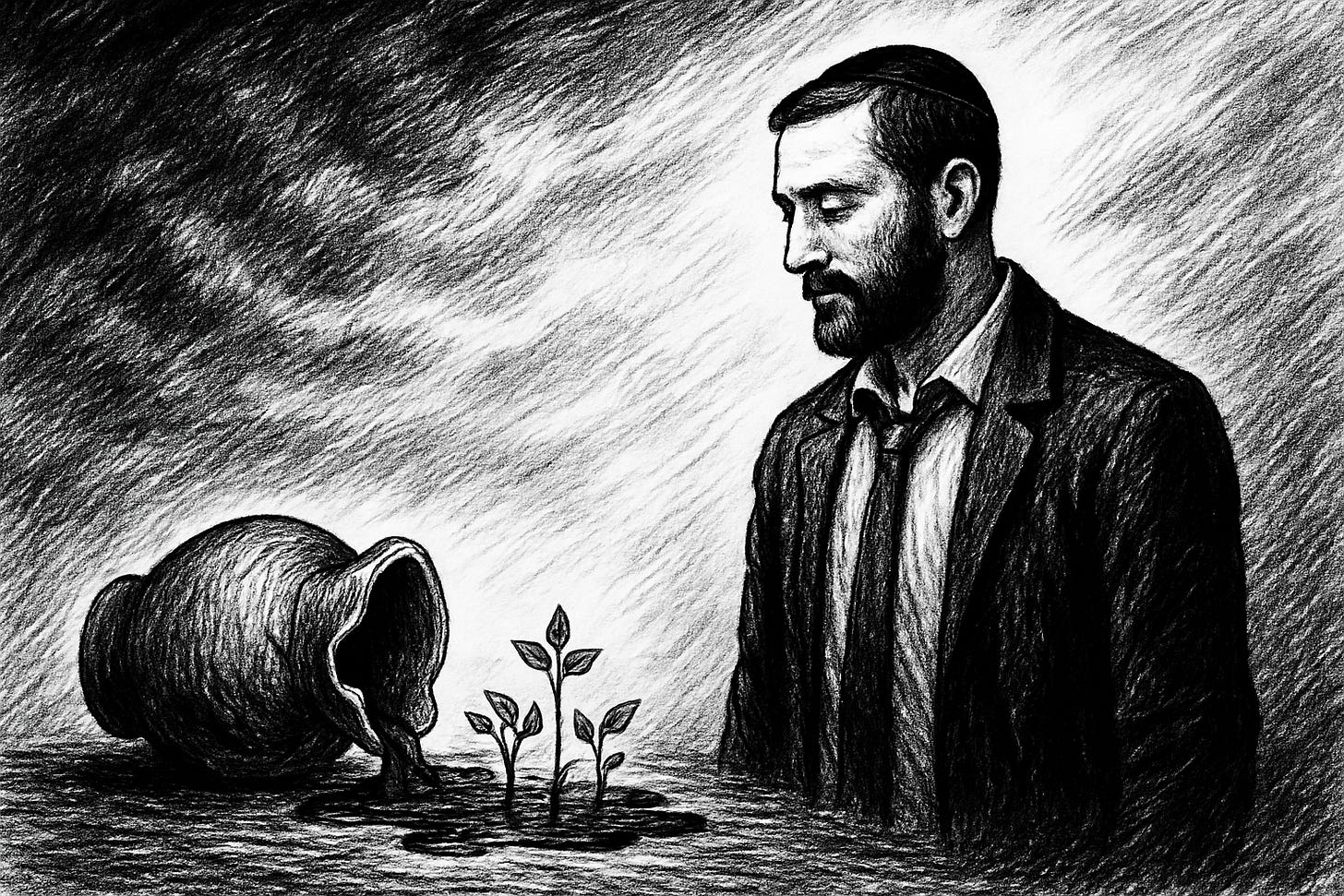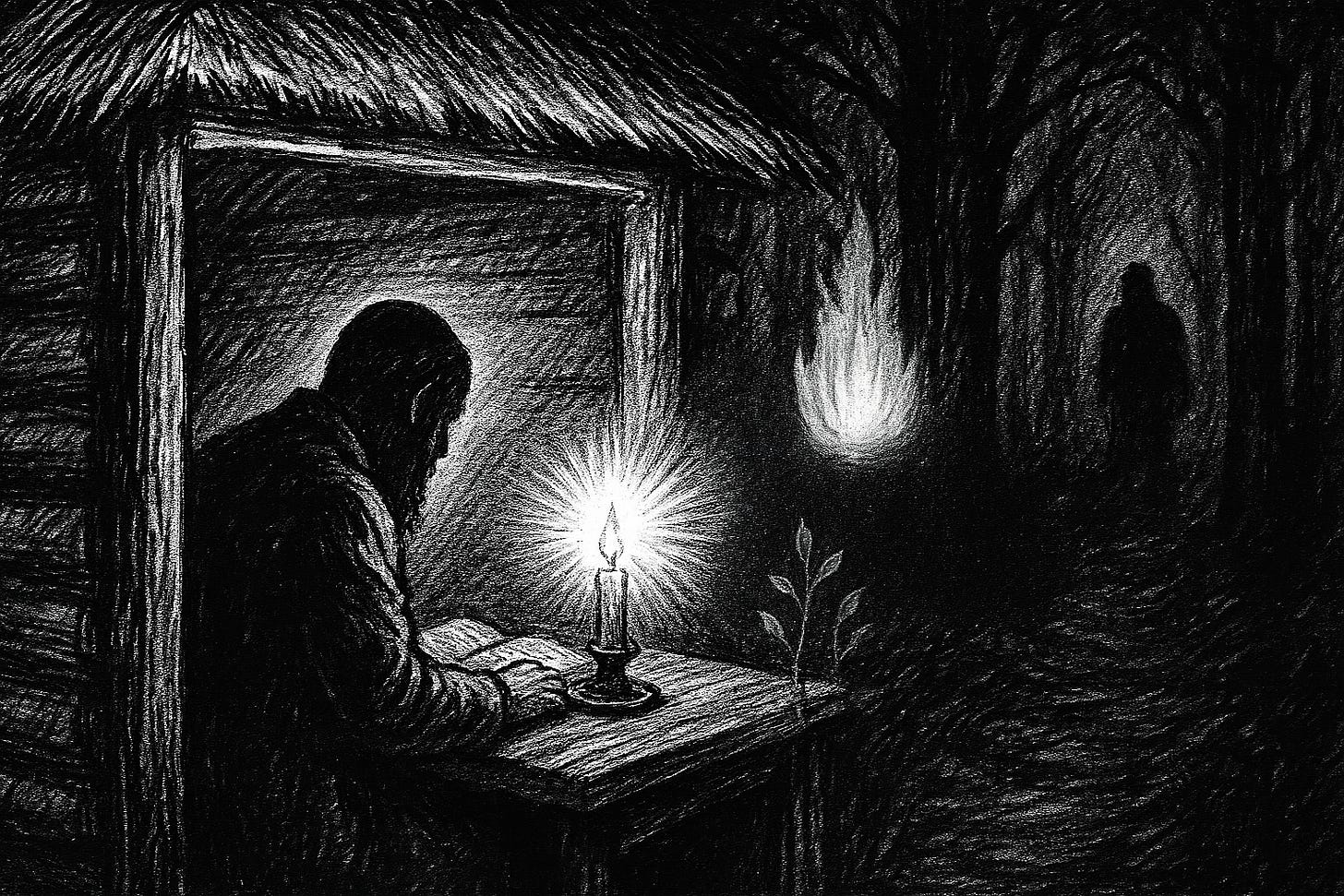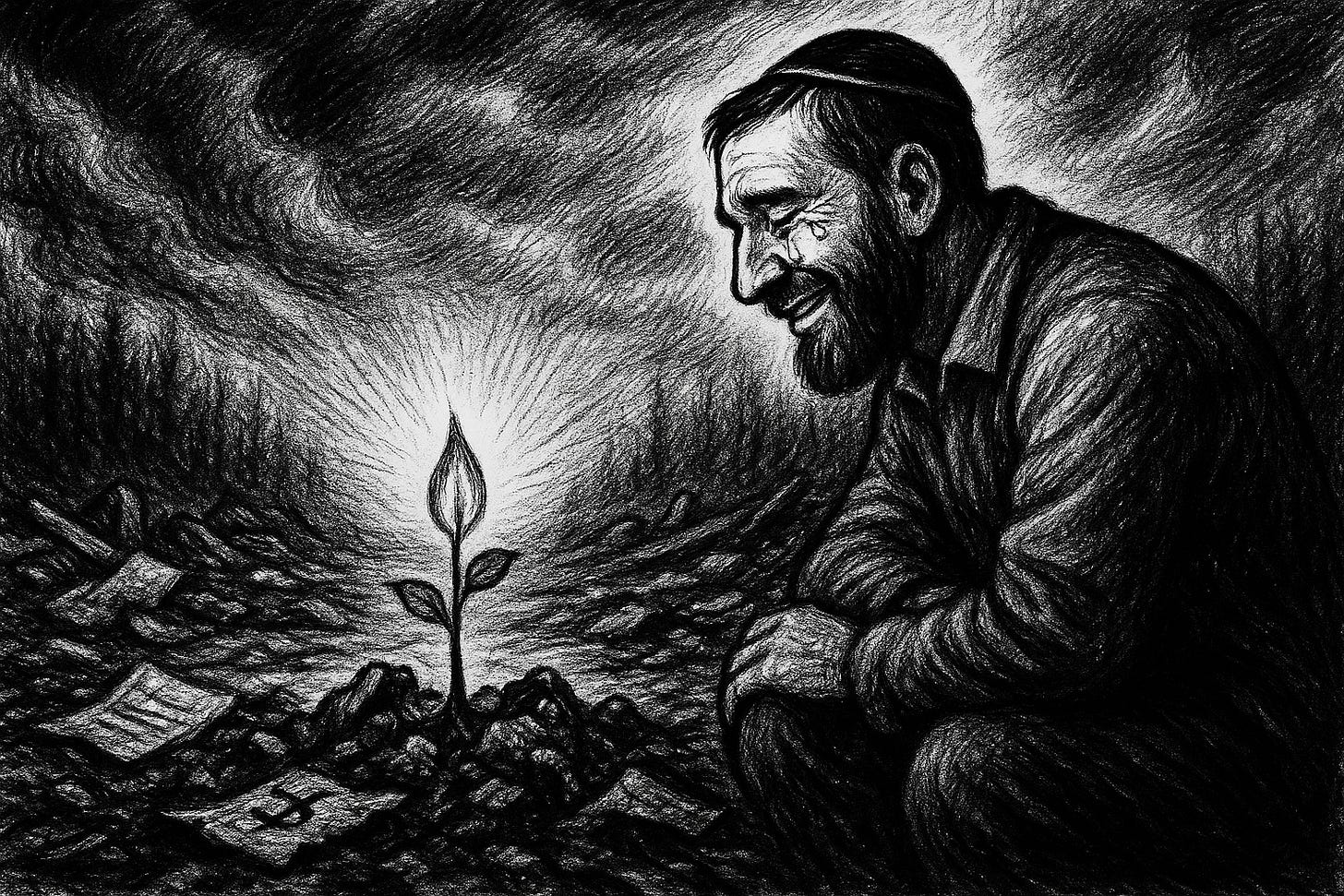Bitachon Part 3—You Are Not Your Results
When effort isn’t enough—and that’s not your problem.
“If I failed, it means I didn’t do enough.”
That is another pernicious lie.
And it’s killing good men.
Men who wake up early. Who put in effort. Who shows up.
And then when things don’t work out, you fold.
Not on the outside.
You still go to work. Still learn. Still keep Shabbos.
But inside?
You break. Quietly. Slowly. Shredded by shame, by the mud, the hester of the world.
Because no one ever taught you…
Results don’t define you. Hashem does.
The Trap We All Walk Into
You finally surrendered the illusion of control.
You stopped pretending you’re God.
You learned that Bitachon means letting go of outcomes.
But now?
You do your hishtadlus.
You build the vessel.
You give it over.
And it still fails.
The business goes cold.
The marriage stays tense.
The project fizzles.
The kid drifts further.
And something twists in your gut.
You start asking yourself:
“Maybe I didn’t do enough. Maybe I picked the wrong job. Maybe I’m just not cut out for this.”
No.
No, no, no, NOOOO!!!!
You didn’t fail.
You were faithful.
And that’s all Hashem asked of you.
The Torah You Were Never Taught
I know that sounds cheesy. That's because you haven't done the reframe yet in your mind.
The Shaar HaBitachon doesn’t say, “Trust brings success in the exact way I want it. Neatly packaged with a little bow on top.”
It says “Bitachon is the serenity of the soul of the one who trusts—whose heart is confident that the One he trusts will do what is best for him.”
Best.
Not the easiest.
Not profitable.
Not what your neighbor got.
Best.
The Beis HaLevi says it clearer. “Even when successful, this was not due to your Hishtadlus. Only to what was already decreed by Hashem.”
So you did the work. You planned. You executed.
And it didn’t go.
That’s not failure. That’s Bitachon in motion.
You showed Hashem you were willing to build.
And now you trust Him enough to break it.
Because maybe the job would’ve destroyed your integrity.
Maybe that “yes” would’ve stolen your kids’ time.
Maybe that rejection was mercy disguised as loss.
You’ll never know.
And that’s the point.
The Moment He Almost Quit
I have a friend who tried launching an offer he knew was going to work.
Tight copy. Clean funnel. Real leads.
He wasn’t winging it.
And… nothing.
Silence.
A week passed. Then two.
He refreshed his email like it was Krias Yam Suf.
Started doubting every part of the plan.
And worse—he started doubting himself.
Then he opened the Beis HaLevi again.
“You can’t know what’s ultimately good for you, so how can you rely on your own hishtadlus?”
That’s when it clicked.
He told me, “This wasn’t about the product. It wasn’t about my strategy. It was about me still clinging to results like Avodah Zarah.”
He stopped checking, took a deep breath, and I whispered, “Ribono Shel Olam, I did my part. You take it from here.”
Three months later, a smaller project, born from the ashes, took off.
But that wasn’t the win.
The win was the quiet inside.
The day he realized he wasn't the numbers.
It was just the effort.
The emunah.
That’s the scoreboard.
Novardok Rules
The Alter of Novardok lived on a different plane of reality, or so it seemed.
The universe itself would reform itself around his Bitachon.
One night, deep in the woods, in a hut in the forest, the Alter of Novardok sat alone learning.
No noise. No distractions. Just Torah, candlelight, and silence.
Then the candle died.
Total darkness. No way to learn. No backup plan.
Most men would panic. Curse. Pace. Blame.
Not Rav Yosef Yozel.
He sat still. Hurt by the bitul Torah, but not shaken.
Why?
Because he had Bitachon. Not as a concept. As a reflex.
He got up. Opened the door and knew Hashem would sort it out.
And at that exact moment, a man appeared out of the black.
No words. No introduction.
Just handed him a candle... and vanished.
That’s it.
A miracle, clean as steel.
The Alter kept that candle for twenty five years.
Not as a trophy.
Not as a segulah.
But as a reminder: Hashem delivers. Always.
Then one day, a fire tore through Novardok.
The candle was gone. melted.
And Rav Yosef Yozel didn’t mourn.
He didn’t flinch.
He didn’t even sigh.
He smiled and said, “Baruch Hashem. He’s telling me I don’t need reminders anymore.”
That’s what it means to live with Bitachon.
Not just to receive miracles, but to outgrow the need to be amazed by them.
The Reframe
Bitachon can do this.
But when it doesn’t, what do you do?
Throw in the towel?
Or reframe the situation.
There is no such thing as wasted work. The value will show itself somewhere down the line.
A Gibor builds with excellence but lets Hashem write the ending.
“I fight like it’s up to me. I rest like it never was.”
Consider the following:
What “failure” still eats at me because I believe it says something about who I am?
Have I done the MSRE, ‘Minimum Standard of Reasonable Effort,’ or am I blaming myself for Hashem’s choice?
Would I rather win or be worthy?
(and for you, my friend, would you rather be right or be at peace.)
In the next essay, we hit the next internal lie: “I can’t rest unless I fix it all.”
We’ll break the myth of permanent stress and show how Bitachon brings calm in the chaos, not when it’s over… but right now.






